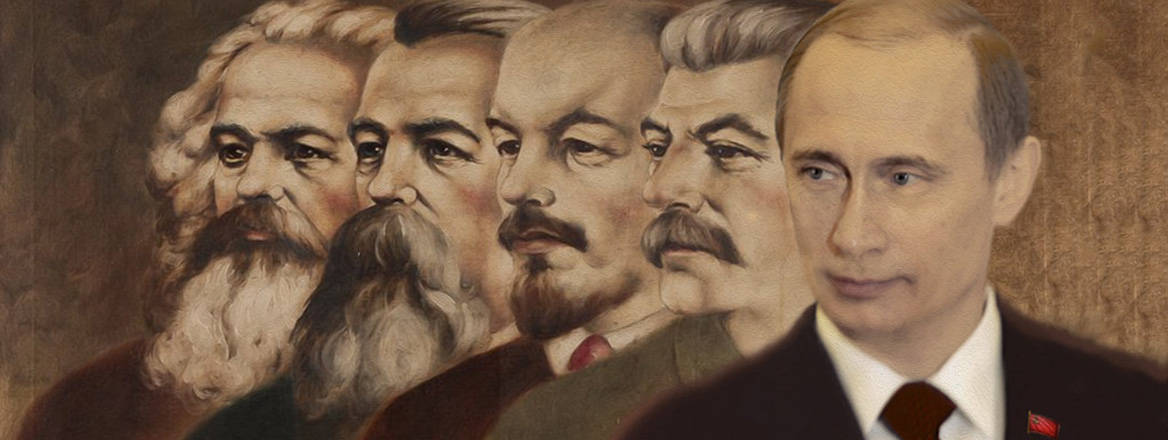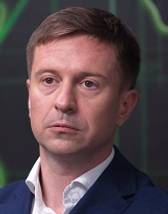Russia’s Demands: It’s Not About Ukraine, It’s About Recreating an Empire
The Russian president’s agenda is back to the USSR.
The incessant speculation about the purpose and objectives of Russia's massing of troops on Ukraine's borders continues, as do the efforts of politicians to seek dialogue with the Kremlin to prevent Russian aggression. Yet the vast majority of scenarios voiced by analysts and government officials involve a very traditional military invasion, with almost no predictions of Russia's actions in other domains, or an assessment of how these actions could be synchronised with Russian military operations and the thought process underpinning them.
This limited, restrictive approach to the analysis of Moscow's possible Ukraine actions risks neglecting the complex nature of such operations, the predominance of non-military means of war over military ones, and plausible denial of Russia’s own participation in aggression – a tactic inherent in the old Soviet and Russian traditions. A serious shortcoming of the current attempts to analyse Russian activities is also the neglect of other theatres in which Russia is currently successfully carrying out aggression in full accordance with its own modus operandi. Among these theatres, Belarus and Kazakhstan should be singled out, where during the last year Russia has significantly increased its influence without resorting to direct military occupation.
Although the regimes of these countries were considered friendly to Russia, the authoritarian leaders of Belarus and Kazakhstan – Alexander Lukashenko and Nursultan Nazarbayev – sought to maintain their sovereignty and nationalist sentiment, and to diversify their dependency on Russia through ties with the West and China. Due to the internal destabilisation of these countries, which Russia has at the very least successfully benefitted from, Lukashenko has finally lost international recognition, and Nazarbayev – who until recently had the status of leader of the nation under the Constitution – publicly acknowledged that he was a regular pensioner and President Kassym-Jomart Tokayev is the real head of state.
The attitude of these countries to the issues of deeper integration with Russia and Moscow’s foreign policy has changed. Lukashenko has already signed 28 programmes to deepen Belarus's integration into the Union State with Russia, effectively recognised Russia's rights to Crimea, and launched constitutional reforms that are likely to significantly limit his personal power in favour of a new, more Moscow-friendly model, and will allow the deployment of Russian troops and nuclear weapons in Belarus. Constitutional reform in Belarus is taking place in parallel with the introduction into the country of Russian troops participating in sudden joint exercises.
A serious shortcoming of current attempts to analyse Russian activities is the neglect of other theatres in which Russia is currently successfully carrying out aggression
In Kazakhstan, after the de facto coup d’état that took place amid street protests, the Nazarbayev regime was overthrown and replaced by the Tokayev regime. In fact, the introduction of Russian troops into the country was to provide forceful support for such a transfer of power, preventing resistance from Nazarbayev and his loyal Kazakh security forces. The consequences of Nazarbayev's removal are likely to be an increase in Kazakhstan's military and economic cooperation with Russia, as well as Kazakhstan's possible entry into the Union State with Russia and Belarus. Another important aspect of Russia's growing influence in these countries is Russia's control over their strategic resources: in addition to large deposits of oil and gas, Kazakhstan controls 40% of global uranium production and Belarus controls 20% of global production of potash fertilisers.
In this context, it is also worth mentioning Kyrgyzstan, where more pro-Russian leaders have come to power as a result of several revolutions, and Washington has lost Manas Air Base, which until 2014 was the US Air Force's transit centre. After the latest riots in 2020, Sadir Zhaparov became Kyrgyzstan’s president, and one of his first decisions was the nationalisation of the country's gold mining industry – a move that targeted the Canadian company Centerra Gold, which accused the Kyrgyz government of illegal behaviour.
Russia has traditionally viewed its allies as a sphere of exclusive influence, and the existence of security agreements as a right to interfere in the domestic politics of these countries, including through military invasion. Textbook examples of this approach include not only operations against other members of the Warsaw Pact – Hungary in 1956 and Czechoslovakia in 1968 – but also the Soviet invasion of Afghanistan in 1979. Although it is not often mentioned, Afghan leader Hafizullah Amin, who was assassinated by Soviet special forces at his palace, was a Marxist-Leninist and led the regime that came to power as a result of the 1978 Saur Revolution, a pro-Soviet coup.
Modern Russian colonialism uses the same model as the Soviet Union: the establishment of pro-Russian regimes in satellite countries, followed by the violent suppression of attempts to change political course, both at the level of the population and at the level of elites. Relying on the threat of military force, Russia is actively using election fraud, coups and even revolutions to maintain control in such countries. Using similar methods, immediately after the end of the Second World War, the Soviet Union ensured the establishment of communist regimes in the countries of the future Warsaw Pact. The further curtailment of democratic freedoms and the establishment of authoritarian regimes are intended to consolidate the status quo desired by Moscow.
Russia has traditionally viewed its allies as a sphere of exclusive influence, and the existence of security agreements as a right to interfere in their domestic politics
The existence of NATO significantly limits Russia's ability to expand its sphere of influence using this methodology, as it minimises Russia's military threat – on which the Kremlin actively relies – forcing it to conduct operations in other dimensions.
By demanding an end to further NATO enlargement and a ban on Ukraine's accession to NATO, Russia is not seeking to enhance its own security. Instead, it is seeking recognition of its right to intervene, including militarily, in countries that Moscow believes remain its colonies.
The views expressed in this Commentary are the author’s, and do not represent those of RUSI or any other institution.
Have an idea for a Commentary you’d like to write for us? Send a short pitch to commentaries@rusi.org and we’ll get back to you if it fits into our research interests. Full guidelines for contributors can be found here.
WRITTEN BY
Oleksandr V Danylyuk
RUSI Associate Fellow, Military Sciences


